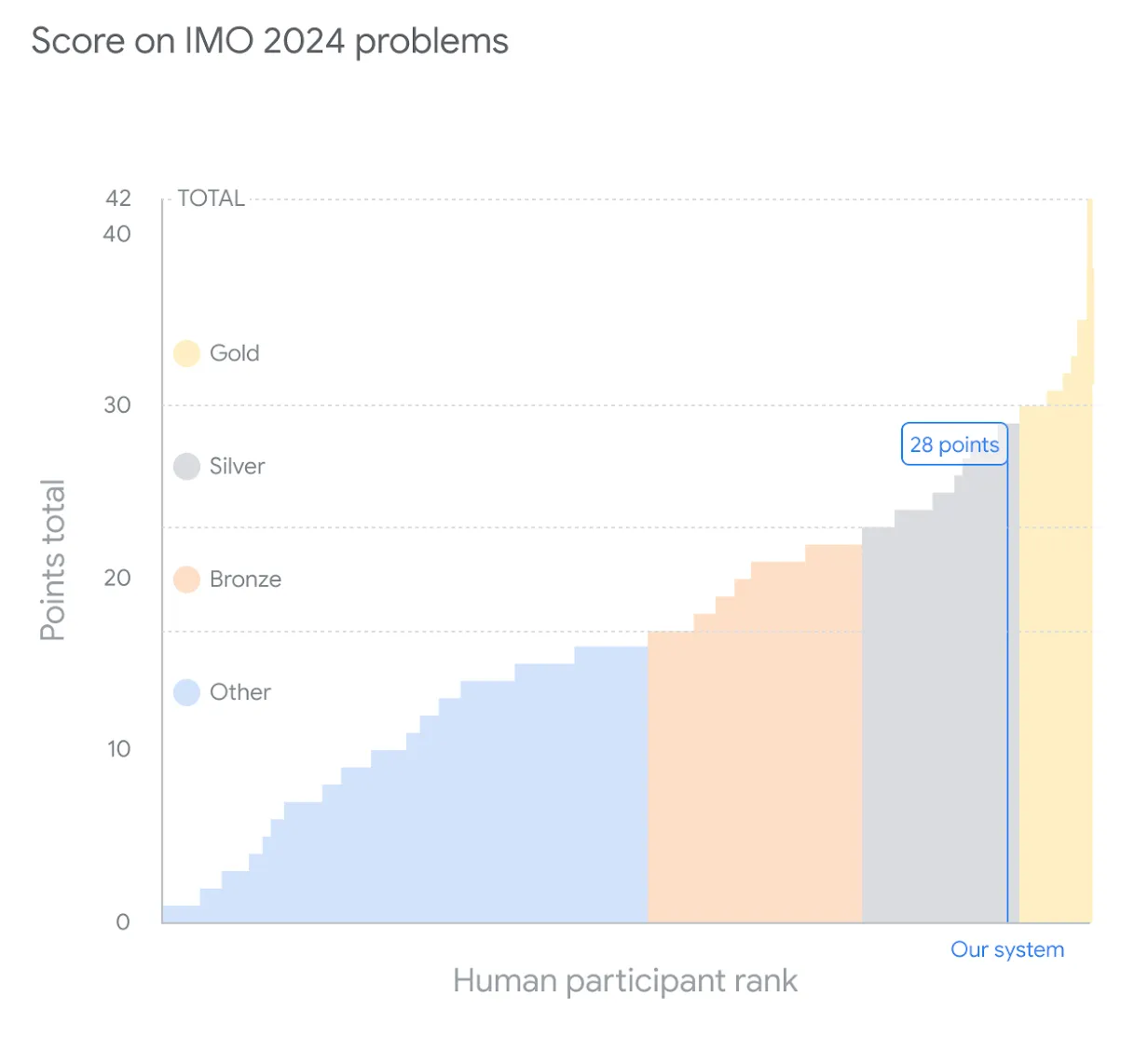AI achieves silver medal solving International Mathematical Olympiad problems
AI Achieves Silver Medal Level in International Math Olympiad Problems: A Milestone in Computational Intelligence
Artificial Intelligence continues to make impressive strides across various domains, from healthcare to transportation, and now it has marked a significant achievement in the field of mathematics. DeepMind, a leading AI research company, recently published a blog post detailing how their AI has solved International Mathematical Olympiad (IMO) problems at a silver medal level. This breakthrough highlights not only the advancement of AI capabilities but also its potential to aid in solving complex mathematical problems that challenge even the brightest human minds.
"The fact that the program can come up with a non-obvious construction like this is very impressive, and well beyond what I thought was state of the art." prof Sir Timothy Gowers, (IMO Gold Medalist and Fields Medal Winner) says
The Significance of the IMO
The International Mathematical Olympiad is one of the most prestigious mathematical competitions for pre-university students worldwide. Since its inception in 1959, it has been a platform where young mathematicians showcase their problem-solving skills, often presenting problems that require deep logical reasoning, creativity, and advanced mathematical knowledge. Achieving a medal in the IMO is a testament to a participant's exceptional mathematical abilities.
DeepMind's Approach
DeepMind's AI system, referred to as AlphaMath, employs a combination of machine learning techniques and advanced problem-solving algorithms. The system was trained on a vast dataset of mathematical problems, including those from previous IMO competitions. The AI uses pattern recognition and symbolic reasoning to tackle problems, mimicking the intuitive and step-by-step approach that human mathematicians use. Here are the results.

Achieving the Silver Medal Level
The AI was tested on a set of IMO problems and performed at a level equivalent to a silver medalist. This accomplishment is particularly notable because IMO problems are known for their complexity and often require innovative solutions rather than straightforward application of known formulas or methods. Achieving a silver medal level means that the AI can solve problems that typically only the top 25% of human competitors can solve, underscoring its advanced problem-solving abilities.
- Educational Tools: AI like AlphaMath can be used to develop educational tools that help students learn complex mathematical concepts by providing step-by-step solutions and explanations for difficult problems.
- Research and Development: Mathematicians and scientists can leverage AI to explore new areas of research, automate tedious calculations, and generate hypotheses for further investigation.
- Cross-Disciplinary Applications: The techniques developed for solving mathematical problems can be adapted to other fields requiring complex problem-solving, such as physics, engineering, and computer science.
- Human-AI Collaboration: This breakthrough opens up possibilities for enhanced collaboration between humans and AI, where AI can assist in verifying solutions, exploring multiple problem-solving approaches, and providing insights that may not be immediately obvious to human researchers. </p>
Ethical Considerations
As AI continues to evolve and take on more complex tasks, it is crucial to address ethical considerations. Ensuring transparency in AI decision-making processes, maintaining data privacy, and preventing biases in AI algorithms are essential to fostering trust and reliability in AI applications.
DeepMind's achievement in having its AI solve IMO problems at a silver medal level marks a significant milestone in the field of AI and mathematics. This development not only demonstrates the growing capabilities of AI but also opens up new avenues for educational advancement, research innovation, and human-AI collaboration. As we continue to push the boundaries of what AI can achieve, it is important to approach these advancements with a sense of responsibility and an eye towards the ethical implications.
For more detailed insights and technical explanations, you can read DeepMind's full blog post here
Subscribe to Kavour
Get the latest posts delivered right to your inbox